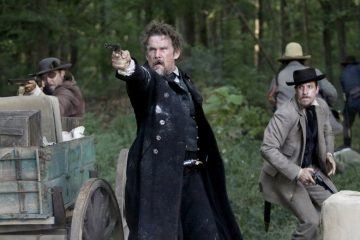Laura Miller in Slate:
 In this didactic cultural moment, when many judge works of art by whether they deliver the right message with perfect clarity, it can be easy to forget that the purpose of novels is not to teach us life lessons or instill in us the proper view on some issue. In other words, the novel isn’t a tool of moral instruction. Rather, it’s a way to imagine how morality plays out in life, to experience vicariously how human beings—flawed, mercurial, riddled with contradictions they often don’t perceive themselves—try and fail not only to do the right thing, but even to understand what the right thing is in the first place. Sometimes that gap between our aspirations or self-knowledge and our actions can be tragic, but just as often, depending on your perspective, it can be funny.
In this didactic cultural moment, when many judge works of art by whether they deliver the right message with perfect clarity, it can be easy to forget that the purpose of novels is not to teach us life lessons or instill in us the proper view on some issue. In other words, the novel isn’t a tool of moral instruction. Rather, it’s a way to imagine how morality plays out in life, to experience vicariously how human beings—flawed, mercurial, riddled with contradictions they often don’t perceive themselves—try and fail not only to do the right thing, but even to understand what the right thing is in the first place. Sometimes that gap between our aspirations or self-knowledge and our actions can be tragic, but just as often, depending on your perspective, it can be funny.
When James McBride published his National Book Award–winning novel,
The Good Lord Bird, in 2013, he
explained in an interview that the subject of his book—the fire-breathing abolitionist John Brown—“was so serious, and his cause was so serious, that most of what’s been written about him is really serious and, in my opinion, a little bit boring.” Now, even more than in 2013, the belief that slavery in America can only properly be addressed with
pious solemnity and torture porn prevails, and confessing that you find this approach a little bit boring seems almost taboo. But
The Good Lord Bird is a comic novel, an exuberant if often dark tumble through the kaleidoscope of paradoxes, absurdities, and, yes, horrors that have made up American attitudes toward race and our national identity. Because it captures the many different ways that human beings come to terms with an essentially insane institution, Showtime’s seven-part series is the rare adaptation that deepens and enriches the novel upon which it’s based.
 In this didactic cultural moment, when many judge works of art by whether they deliver the right message with perfect clarity, it can be easy to forget that the purpose of novels is not to teach us life lessons or instill in us the proper view on some issue. In other words, the novel isn’t a tool of moral instruction. Rather, it’s a way to imagine how morality plays out in life, to experience vicariously how human beings—flawed, mercurial, riddled with contradictions they often don’t perceive themselves—try and fail not only to do the right thing, but even to understand what the right thing is in the first place. Sometimes that gap between our aspirations or self-knowledge and our actions can be tragic, but just as often, depending on your perspective, it can be funny.
In this didactic cultural moment, when many judge works of art by whether they deliver the right message with perfect clarity, it can be easy to forget that the purpose of novels is not to teach us life lessons or instill in us the proper view on some issue. In other words, the novel isn’t a tool of moral instruction. Rather, it’s a way to imagine how morality plays out in life, to experience vicariously how human beings—flawed, mercurial, riddled with contradictions they often don’t perceive themselves—try and fail not only to do the right thing, but even to understand what the right thing is in the first place. Sometimes that gap between our aspirations or self-knowledge and our actions can be tragic, but just as often, depending on your perspective, it can be funny.